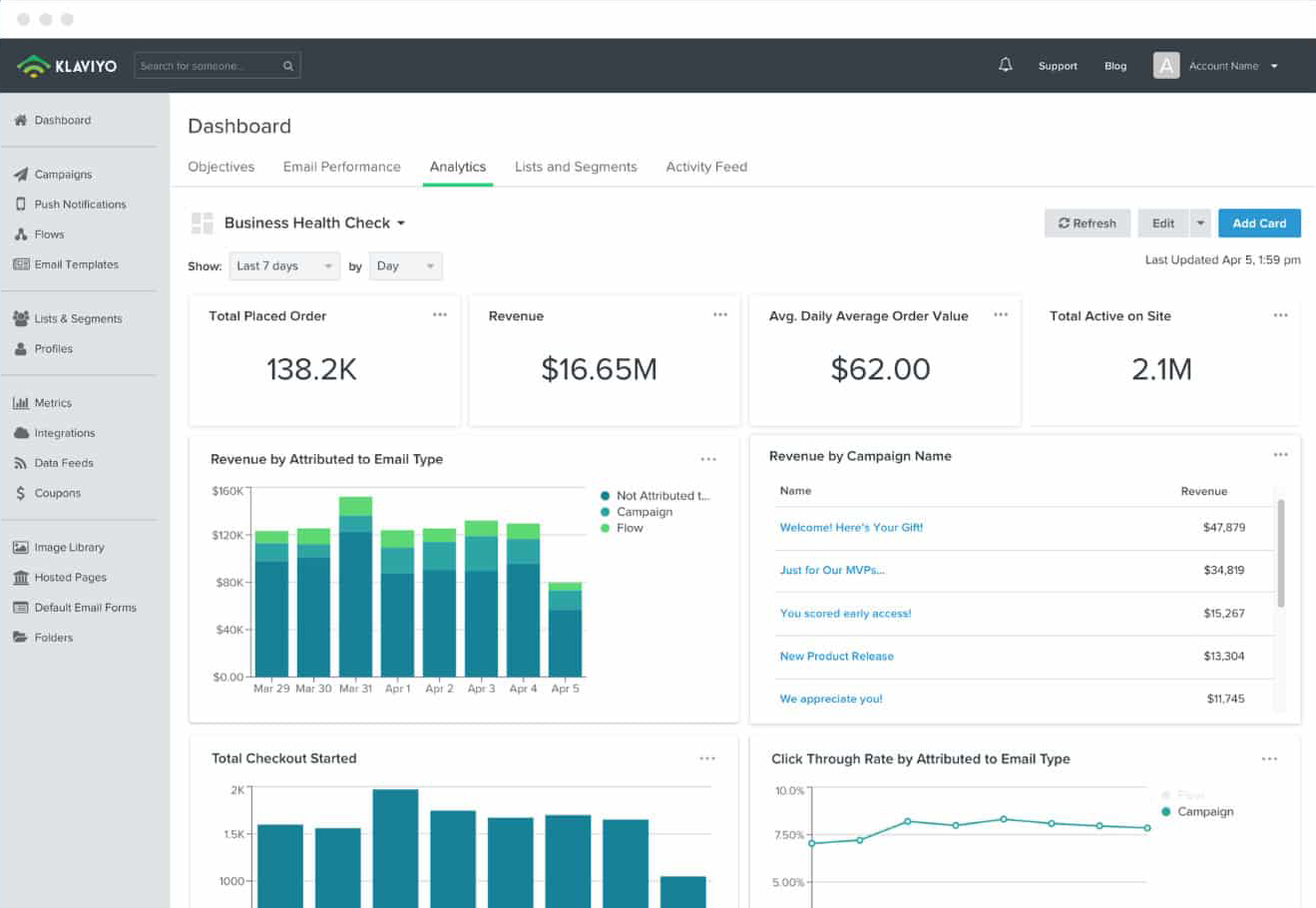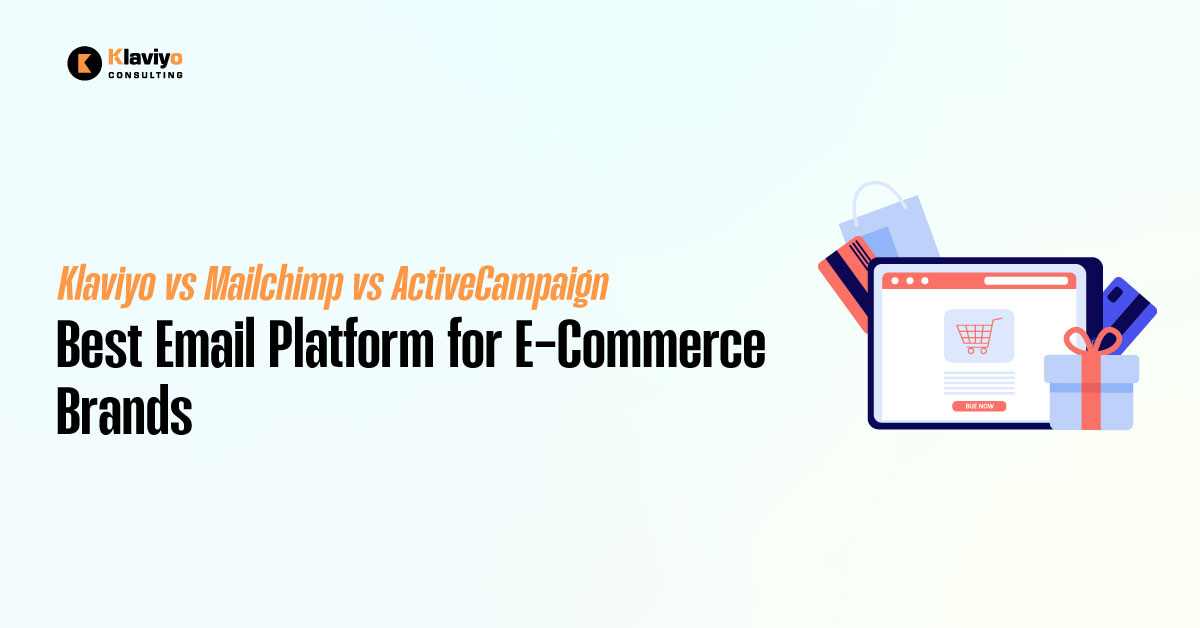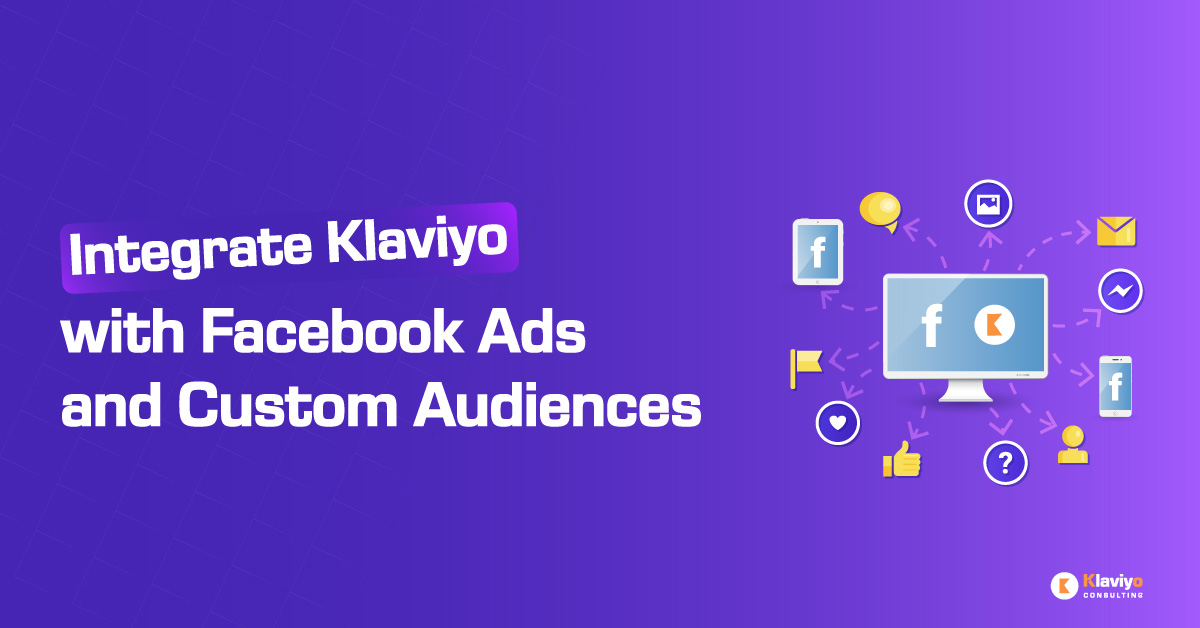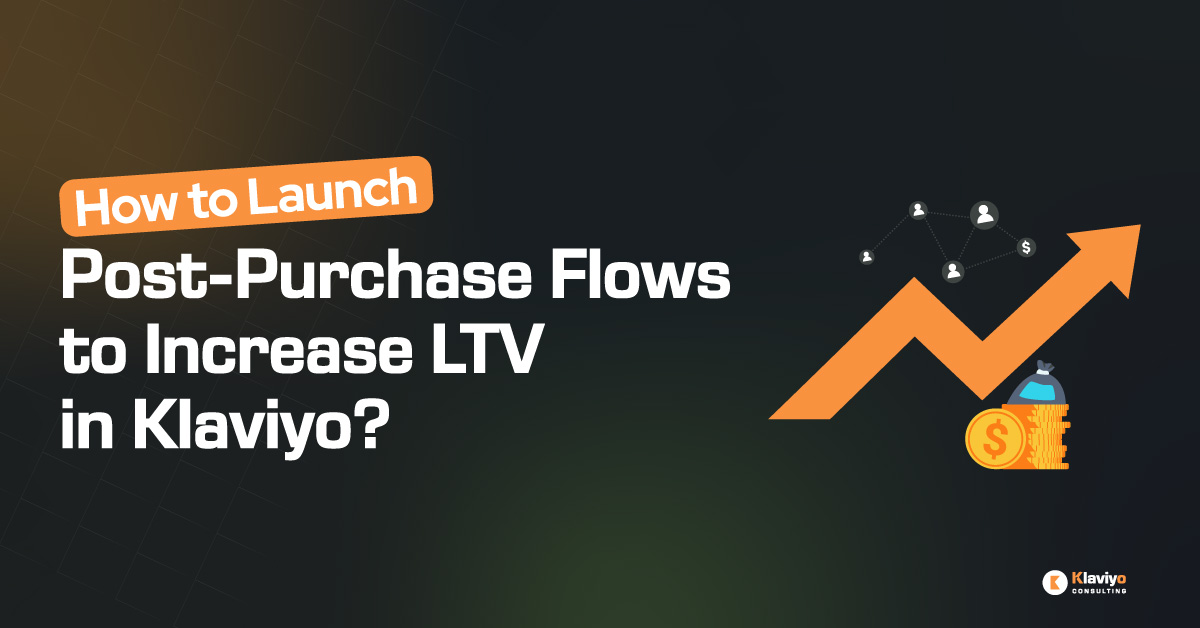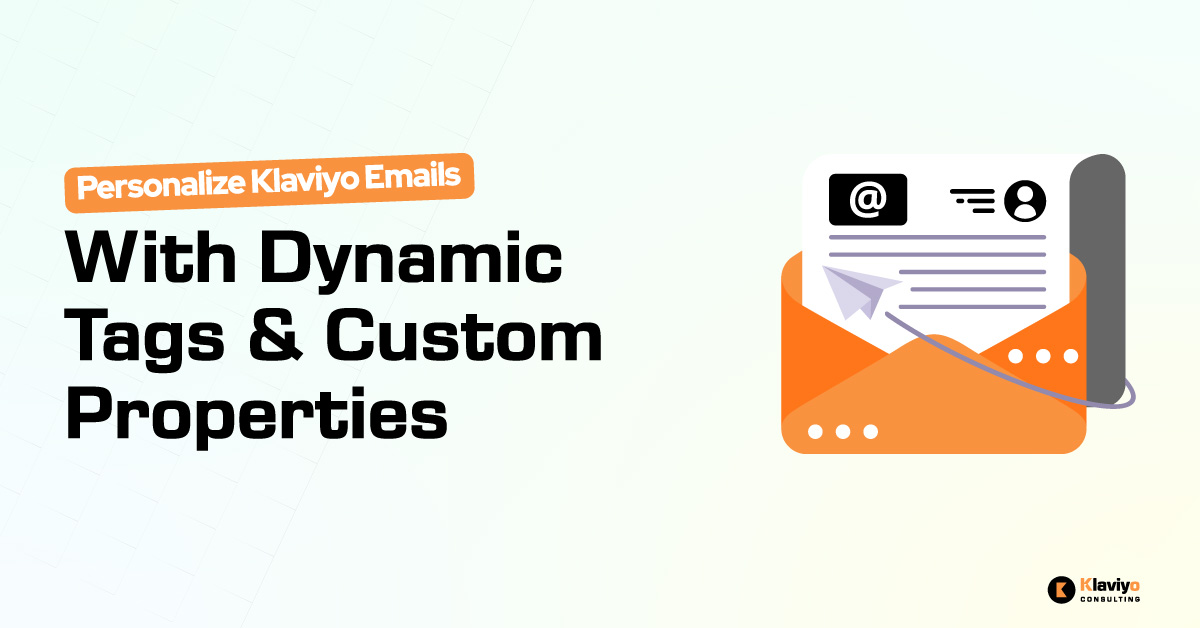Email marketing isn’t just surviving in the digital world; it’s absolutely thriving. For eCommerce brands, it’s one of the highest-performing channels for generating ROI. Research shows that every dollar spent on email marketing yields an average return of $36. That’s not just effective, it’s essential.
However, not all email platforms are made equal. The right email tool can significantly boost your sales and help you establish lasting customer relationships. The wrong one? It can waste your time and tank your conversions.
In 2024, the three biggest names dominating the eCommerce email marketing space are Klaviyo, Mailchimp, and ActiveCampaign. But which platform actually delivers the best results for online stores? Let’s dive deep and find out.
Why is choosing the Right Email Platform critical for e-commerce Success?
Picking the right email marketing platform for your eCommerce store isn’t just a checkbox on your to-do list. It’s one of the most important decisions you’ll make for long-term growth.

More Sales. Higher LTV. Less Chaos with Klaviyo.
Klaviyo Setup – We configure accounts, connect Shopify/Shopify Plus/Woo, and migrate lists, templates, and data the right way.
Smart Automations – Welcome, browse/cart, post-purchase, and win-back flows with Email + SMS that run themselves.
Clean Data & Reporting – Segments, consent, deliverability, and dashboards so you know what’s driving revenue.
When you’re selling online, timing and personalization are everything. If your platform doesn’t communicate with your store in real-time, your emails will appear out of sync. Outdated product information, generic promotions, and late automations can all negatively impact your customer experience.
With the right tool, you can create personalized emails triggered by browsing behavior, abandoned carts, past purchases, and other relevant events. You’ll also be able to segment your list based on buying habits, purchase frequency, and average order value. That’s how real eCommerce growth happens.
Klaviyo Overview: Built Exclusively for eCommerce
Klaviyo Features That e-Commerce Stores Love
Klaviyo isn’t just another email platform; it’s designed from the ground up for eCommerce businesses. It doesn’t treat email as a separate channel. Instead, it integrates deeply with your store, using real-time data to deliver smarter, more personalized emails and SMS campaigns.
Once you connect your store, you get access to predictive analytics, dynamic product feeds, advanced segmentation, and automated flows for nearly every customer action. Everything feels tailored, fast, and efficient.
Shopify Integration: A Native Powerhouse
Klaviyo’s Shopify integration is seamless. With one click, your store, product catalog, customer data, and order history are synced. No third-party tools. No patchwork apps. Everything runs in real time.
When someone browses a product, adds it to their cart, or places an order, Klaviyo captures the information instantly. This allows you to trigger highly relevant campaigns without delay. You can create flows based on specific products, collections, or customer behavior within minutes.
Advanced Segmentation and Real-Time Tracking
Segmentation is where Klaviyo truly excels. You can build audience segments based on virtually anything, including the last product viewed, total spend, days since last purchase, items in cart, and more.
These segments update in real time. That means that if a customer makes a purchase, their status and behavior are automatically updated across all flows and lists. You can treat your email list like a living ecosystem rather than a static list.
Mailchimp Overview: Budget-Friendly for Beginners
Strengths for Small Shops and Startups
Mailchimp has been a household name in email marketing for over a decade. For beginners and small businesses, it offers a simple interface, a drag-and-drop email builder, and a free plan that covers the basics.
If your store is just getting started and your focus is on sending occasional newsletters or welcome emails, Mailchimp will suffice. It’s straightforward and has a lower entry barrier.
Where Mailchimp Falls Short in eCom Automation
Mailchimp wasn’t built for eCommerce first, and it shows. It lacks key features like real-time product sync, predictive analytics, and advanced customer journey flows. Its automation capabilities are basic at best.
In fact, Mailchimp lost its native integration with Shopify back in 2019. While you can still connect them using tools like ShopSync or Zapier, these workarounds can be unreliable. Sync delays and broken connections are not uncommon.
As a result, if you’re serious about automation, customer segmentation, and personalization, Mailchimp can feel very limiting.
A Look at Templates, Flows, and Integrations
Mailchimp has a good selection of templates, but they’re mostly geared toward general email marketing, not eCommerce-specific use cases. You won’t find prebuilt flows for cart abandonment, post-purchase follow-ups, or VIP campaigns.
It does integrate with several platforms, including WooCommerce, Squarespace, and Magento, but often through plugins or middleware rather than direct connections.
ActiveCampaign Overview: CRM Meets Email Marketing
CRM Features That Appeal to Multi-Channel Brands
ActiveCampaign is more than just an email platform. It combines email marketing, CRM, and automation into one powerful system. That makes it appealing to businesses that sell both online and offline or have long sales cycles.
If you’re running a hybrid business or need to manage leads, track deals, and run multi-step campaigns, ActiveCampaign might be a better fit than the others.
Workflow Automation and Sales Funnels
One of ActiveCampaign’s biggest strengths is its visual automation builder. You can create detailed workflows that branch out based on actions, time delays, tags, or other logic.
These automations are great for sales pipelines or educational sequences, but less optimized for eCommerce-specific behaviors. Unlike Klaviyo, you won’t get prebuilt flows for product recommendations, repeat purchases, or abandoned cart sequences out of the box.
Shopify Integration: Workarounds and Limitations
ActiveCampaign offers a Shopify integration, but it’s not as tight as Klaviyo’s. The data doesn’t sync instantly, and product feeds don’t update emails in real-time.
This means if you’re trying to send dynamic product recommendations or cart recovery emails, you’ll need to use workarounds or third-party apps. That adds complexity and slows down your campaigns.
Feature-by-Feature Breakdown for eCommerce Use Cases
Native Shopify Integration
Klaviyo offers seamless, one-click integration with Shopify, including real-time syncing of full customer and product data. Mailchimp no longer has a direct integration and must rely on third-party tools, which can introduce syncing issues. ActiveCampaign offers a partial integration, but it lacks the real-time syncing power of Klaviyo.
Built-In e-commerce Flows and Templates
Klaviyo offers a comprehensive library of pre-built flows specifically designed for e-commerce. You’ll find sequences for abandoned cart, win-back, post-purchase, product review requests, and more. Mailchimp lacks these flows and requires manual setup for everything. ActiveCampaign offers some prebuilt automations, but they are more focused on CRM than on eCommerce.
SMS Marketing Capabilities
Klaviyo includes native SMS functionality. You can combine SMS and email in a single automation, making your messages consistent and timely. Mailchimp and ActiveCampaign both rely on Twilio or other third-party providers, which adds complexity and extra cost.
Predictive Analytics and Reporting
Klaviyo includes built-in predictive tools that help forecast customer lifetime value, expected next order date, and churn risk. These insights allow smarter targeting. Neither Mailchimp nor ActiveCampaign includes native predictive analytics.
Real-Time Product Sync
Klaviyo pulls in your whole product catalog and keeps it up to date. You can include dynamic product blocks in emails that reflect current prices, availability, and variants. Mailchimp doesn’t offer this, and ActiveCampaign requires manual setup or the use of external tools to simulate it.
Pricing Comparison: Which Platform Offers the Most Bang for Your Buck?
Klaviyo starts at $20 per month for up to 500 contacts. The best part is that even the free plan includes access to its full feature set, including automations, flows, and SMS.
Mailchimp offers a lower starting price of $13 per month for 500 contacts, along with a free plan. However, many eCommerce features are locked behind higher tiers or unavailable altogether.
ActiveCampaign starts at $29 per month for 1,000 contacts; however, it doesn’t offer a free plan. You pay more as you grow and also for CRM features, even if you don’t need them.
For most eCommerce stores, Klaviyo offers the best value by combining powerful features with scalable pricing.
User Experience and Ease of Use
Klaviyo’s interface is intuitive. You can set up automations quickly and create campaigns with a few clicks. The visual flow builder makes it easy to see your customer journey.
Mailchimp has the simplest interface of all three. It’s beginner-friendly and clean, making it ideal for those just starting out.
ActiveCampaign’s dashboard is more complex. It’s powerful but takes time to learn. You’ll need patience and possibly some training to get the most from it.
Deliverability and List Management
Klaviyo offers strong deliverability backed by advanced list management features. You can easily clean your list, manage suppression lists, and segment your audience based on detailed behavior.
Mailchimp has decent deliverability, but its list tools are less powerful. It’s suitable for general campaigns, but struggles with the complexity of eCommerce.
ActiveCampaign excels at tagging and managing contacts, especially for lead nurturing. However, for eCommerce lists, it lacks deep integration with product and purchase data.
Best Platform for Different Types of eCommerce Brands

If you run a growing eCommerce store and want to automate smart campaigns using real-time data, Klaviyo is the clear winner. It’s purpose-built for online selling, comes packed with automation templates, and includes SMS under the same roof.

For new store owners on a tight budget, Mailchimp is a decent starting point; however, you’ll likely outgrow it quickly if you plan to scale.

If your business requires CRM functionality along with email marketing, ActiveCampaign is a solid choice, though it’s less tailored to eCommerce needs.

